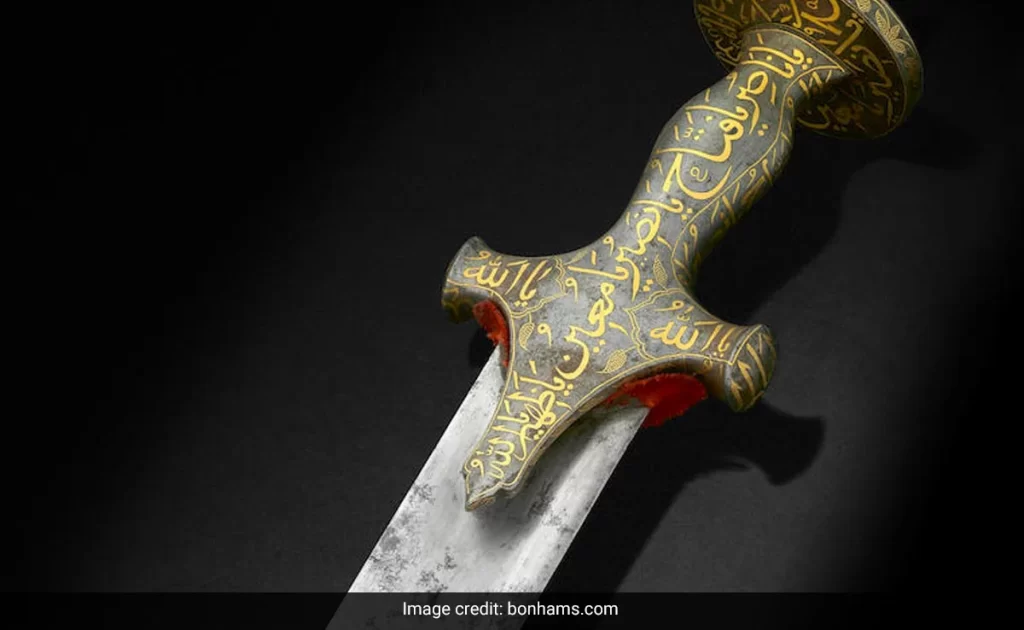The bedchamber sword of Tipu Sultan, the ruler of Mysuru in the 18th century, sold at a London auction for 14 million pounds ($17.4 million or 140 crore). The price on Tuesday was seven times the estimate, according to auction house Bonhams, which conducted the sale.
According to Bonhams, the sword was the most significant of the weapons because of its clear personal ties to the sovereign. In the conflicts of the late 18th century, Tipu Sultan achieved fame. Between 1775 and 1779, he engaged in various battles with the Marathas.
“This spectacular sword is the greatest of all the weapons linked to Tipu Sultan still in private hands. Its close personal association with the Sultan, its impeccable provenance traceable to the day it was captured, and the outstanding craftsmanship that went into its manufacture make it unique and highly desirable,” said Oliver White, Bonhams Head of Islamic and Indian Art and auctioneer.
The sword was found in the private quarters of Tipu Sultan’s palace.
“The sword has an extraordinary history, an astonishing provenance, and unrivaled craftsmanship. It was no surprise it was so hotly contested between two phone bidders and a bidder in the room. We are delighted with the result,” Nima Sagharchi, group head of Islamic and Indian Art at Bonhams, said in a statement.
Tipu Sultan was named “Tiger of Mysore” for the ferocity with which he defended his kingdom.
According to Bonhams, he invented the use of rocket artillery in battle and made Mysore the most vibrant city in India.
According to the auction company, Tipu Sultan’s sword was given to British Major General David Baird as a reward for his valor after he was killed.
Also read: The tale of Tipu Sultan
Tipu Sultan commonly referred to as the Tiger of Mysore was the Indian Muslim ruler of the Kingdom of Mysore based in South India. He was a pioneer of rocket artillery. He introduced a number of administrative innovations during his rule, including a new coinage system and calendar, and a new land revenue system, which initiated the growth of the Mysore silk industry.
He expanded the iron-cased Mysorean rockets and commissioned the military manual Fathul Mujahidin. He deployed the rockets against the advances of British forces and their allies during the Anglo-Mysore Wars, including the Battle of Pollilur and the Siege of Srirangapatna.
